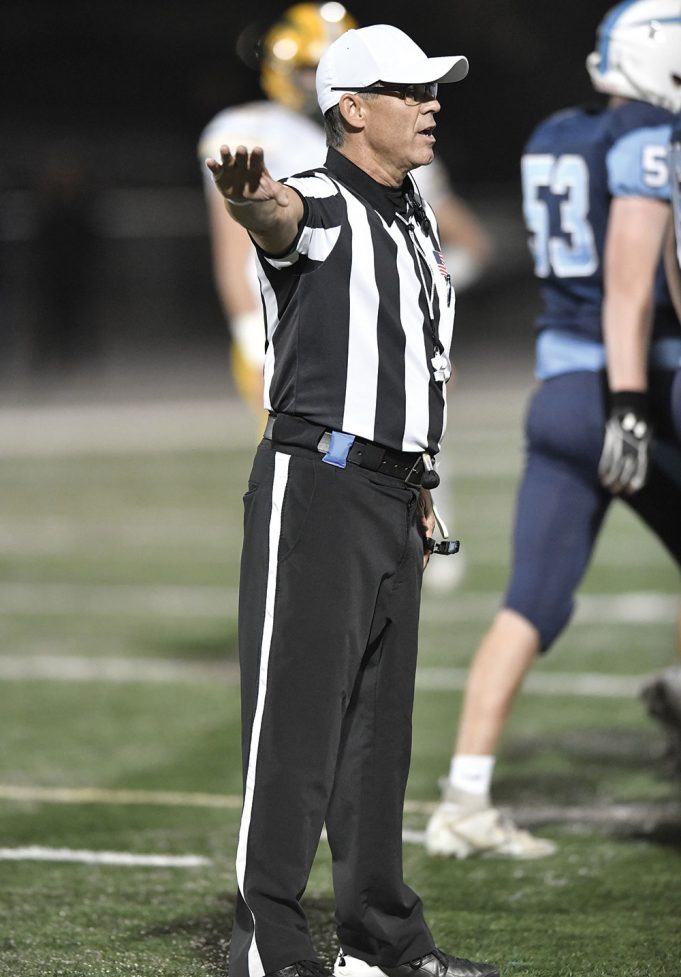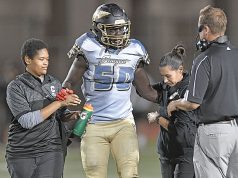At a referee development camp I attended, the camp director began with a single question: “Who is your agent?”
After a period of silence that seemed to last forever, he answered his own question with one word: “You.”
As odd as it may seem, you are your own agent. You are not like professional athletes whose agent makes or negotiates many decisions for them. It is your responsibility to create your own schedule, be in demand and prove that you can do the job. You are responsible for the number and level of games you work. In fact, if you want to become successful as an official, it is crucial to understand that you are responsible for almost everything that happens to you.
However, as the late philosopher Jim Rohn once said, “When you’re playing the game, it’s hard to think of everything.” You need some help. Maybe you need a mentor, or maybe you just need someone in your corner to get your foot in the door. That is where the assigner comes into play.
Two roles
One of the interesting things about sports officials is that we have the dual role of athlete and agent. On one hand, we are responsible for performing at our very best each and every game we work. On the other hand, we must also make sure that we have games to work in the first place. Having a solid relationship with your assigner is perhaps one of the best things you can do to advance your officiating career. It can ensure that you are always in demand.
The main reason for having a great official-assigner relationship is simple and obvious: You want to work bigger, better games — and more of them. It won’t happen overnight. But with diligence, patience and hard work, you can get there.
Officials are considered to be “free agents.” You can only eat what you kill. In the entrepreneurial world, we say that increasing your rewards — in the case of officiating, that is your game count — starts with increasing your value. The more valuable you become as an official, the more games you work, the better games you work and the more satisfied you will be knowing that you are very good at what you do.
What are some ways you can make yourself more valuable to your assigner?
Hard, hard work. I know it’s cliché, but it’s true. Hard work will get you noticed not only by assigners, but by coaches and other officials. You make yourself desirable as someone other officials want to work with and that assigners want to hire. Simply put, if you are not seen as a hard worker, it will be harder for you to convince your assigner that you are willing to work bigger and better games.
Assigners are not in the business of gambling. Their jobs depend on the quality of officials they send to games. They want to know the crew they put out on the court or field will get the job done.
Coaches do take notice of hard-working officials, and they may actually tell assigners what a good job you did. That will definitely separate you from the officials who get little to no positive feedback at all.
Work with the rookie
Assigners are always looking for more-experienced officials to work with new officials. You can make your assigner’s job so much easier — and enhance your schedule — by offering to work games with a rookie or a less-experienced official. Veteran officials are accustomed to working with other veterans. We all like working with people we already know. But if you work with someone new to you, you may find you’ve found another official you trust and with whom you feel comfortable working.
Take the game nobody wants
That might mean doing the Sunday morning game, the game on what was supposed to be your night off, or the one between cellar-dwellers that won’t show up on the 10 o’clock news.
Our local association has the “Fireman Award” for the official who accepts the most last-minute game turnbacks. Making your assigner’s job easier will increase your value as an official tremendously.
Keep up your availability
Keep your schedule up to date on a regular basis. Turn in all your paperwork on time. When you accept a game, keep it. One of the easiest ways to annoy your assigner is to constantly decline games offered to you because you fail to block your schedule. If you are constantly wondering why you aren’t getting games, that may be the reason why.
One of the logistics coordinators for our development program loves to use the term “low maintenance.” That means keeping things simple: Review your schedule regularly, accept games that are offered and move on. Be low maintenance and the rest will seem to take care of itself.
Network at local meetings
Introduce yourself to the assigners. Talk to the officials who work at the level you want to work. Demonstrate to them that you are willing to work hard and are open to learning from each game you officiate. Don’t be pushy with them, but show them you are ambitious and ready for whatever game you accept.
And finally, remember that the bridge between you and your games is your assigner. Treat him or her with the same courtesy you would treat your family members. According to Dale Carnegie’s book How to Win Friends and Influence People, 85 percent of success or failure in any field comes from communication and dealing with other people.
Understanding that one principle will propel you forward more than you can imagine, no matter what you do in life — because you are your own agent in officiating and in life.
What's Your Call? Leave a Comment:
Note: This article is archival in nature. Rules, interpretations, mechanics, philosophies and other information may or may not be correct for the current year.
This article is the copyright of ©Referee Enterprises, Inc., and may not be republished in whole or in part online, in print or in any capacity without expressed written permission from Referee. The article is made available for educational use by individuals.

















